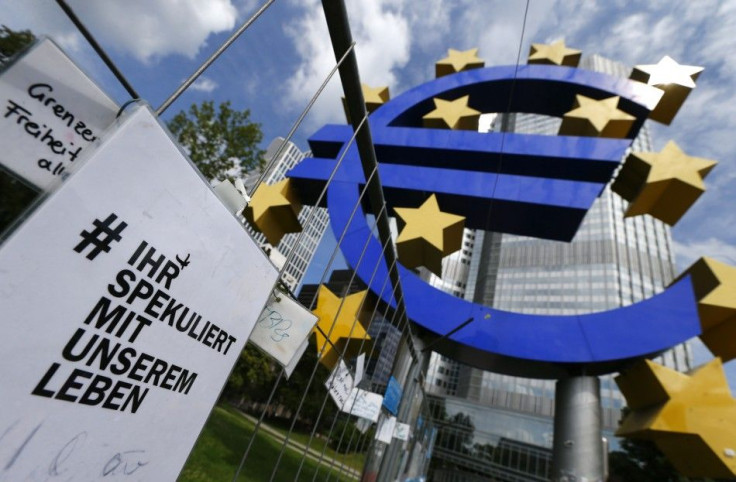Global Markets Overview – August 15, 2014

Central banks lock in 'lower for longer' rates
The geo-political troubles of last month continue to slide off the front page; both Iraq and Ukraine are showing signs of reaching equilibrium in the respective conflicts, meaning the markets are refocusing on central banks.
Russia overnight took the strongest step yet to de-escalate the situation, with President Putin declaring 'Russia would stand up for itself but not at the cost of confrontation with the outside world'. This one sentence sent European markets rocketing higher as the conciliatory tone of the statement suggested Russia will back away. The de-escalation was enhanced when Russia's 280 odd aid trucks were allowed to cross the border after meeting the demands of the Ukrainian government in Kiev however interestingly they have stopped 20 miles from the border.
This morning, news has filtered through that incumbent Iraqi Prime Minters Nouri al-Maliki will step down and will hand over the Prime Ministership to deputy speaker Haidar al-Abadi. The fall in Brent crude on this news was telling. The October contract fell 2.9% to $102 a barrel, suggesting the market sees this change as one of action and that al-Abadi can broker a deal that will pass parliament to tackle the country's issues. However al-Abadi has an immense task, as he now has to deal with the mass rise of the Islamic State.
However with geo-politics off the front page, macro news is once more taking over and the debate around the Fed's current monetary policy has promptly resumed. The weekly jobs claims last night surprised the market, jumping back above 300,000, as 21,000 extra people filed claims taking the weekly read to 311,000 versus an expected read of 295,000. This quickly resulted in street talk around the theme of 'lower for longer' from the Fed. This is becoming the catch cry for many major markets and the increase in jobless claims leaves expectations for a move in the Fed's funds rate firmly on the back burner.
However, the US is not alone here; Australia, Japan and the EU are all in the same boat. Lower for longer looks increasingly likely in these economies as inflation, a word that we said would be the metric to watch come winter, is having a major impact. Negative wages in Australia; a technical recession in Italy; ZEW confidence figures and industrial production on a steep decline in Germany; Portugal crippled by the European debt crisis; European inflation stagnate and Japan seeing real inflation falling, despite current central government and central bank actions while its GDP is collapsing.
Central bank support is here to stay and it will continue to be the driving factor in market trade.
Ahead of the Australian open
We are currently calling the ASX 200 up 0.44% to 5573; the strong recovery is pleasing to see, earnings season so far has seen most results ahead of expectations. Rio, Commonwealth Bank and Telstra have all beaten expectations. However, all three have expected differing market reactions.
What is apparent form the trading activity so far is guidance remains key to share price direction. The sell-off in CBA on Wednesday is the stark reminder that FY15 is likely to be tough and conditions are far from stable, and the growth seen in FY13 and FY14 is subsiding.
Asian markets opening call | Price at 8:00am AEDT | Change from the Offical market close | Percentage Change |
Australia 200 cash (ASX 200) | 5,573.10 | 25 | 0.44% |
Japan 225 (Nikkei) | 15,354.20 | 140 | 0.92% |
Hong Kong HS 50 cash (Hang Seng) | 24,916.40 | 26 | 0.11% |
China H-shares cash | 11,125.10 | -83 | -0.74% |
Singapore Blue Chip cash (MSCI Singapore) | 376.79 | 1 | 0.22% |
US and Europe Market Calls | Price at 8:00am AEDT | Change Since Australian Market Close | Percentage Change |
WALL STREET (cash) (Dow) | 16,717.60 | 66 | 0.40% |
US 500 (cash) (S&P) | 1,956.90 | 9 | 0.47% |
UK FTSE (cash) | 6,699.80 | 49 | 0.73% |
German DAX (cash) | 9,253.20 | 73 | 0.79% |
Futures Markets | Price at 8:00am AEDT | Change Since Australian Market Close | Percentage Change |
Dow Jones Futures (September) | 16,684.50 | 73.00 | 0.44% |
S&P Futures (September) | 1,953.63 | 9.50 | 0.49% |
ASX SPI Futures (September) | 5,517.00 | 25.50 | 0.46% |
NKY 225 Futures (September) | 15,345.00 | 47.50 | 0.31% |
Key inputs for the upcoming Australian trading session (Change are from 16:00 AEDT) | Price at 8:00am AEDT | Change Since Australian Market Close | Percentage Change |
AUD/USD | $0.9315 | 0.0019 | 0.20% |
USD/JPY | ¥102.475 | -0.075 | -0.07% |
Rio Tinto Plc (London) | £33.87 | -0.36 | -1.06% |
BHP Billiton Plc (London) | £20.25 | -0.15 | -0.71% |
BHP Billiton Ltd. ADR (US) (AUD) | $38.19 | 0.03 | 0.08% |
Gold (spot) | $1,312.30 | 0.60 | 0.05% |
Brent Crude (September) | $102.02 | -1.92 | -1.84% |
Aluminium (London) | 1995 | -37.00 | -1.82% |
Copper (London) | 6827 | -58.00 | -0.84% |
Nickel (London) | 18600 | -70.00 | -0.37% |
Zinc (London) | 2272.25 | -9.75 | -0.43% |
Iron Ore (62%Fe) | 93.2 | 0.00 | 0.00% |
[Kick off your trading day with our newsletter]
More from IBT Markets:
Follow us on Facebook
Follow us on Twitter
Subscribe to get this delivered to your inbox daily




















